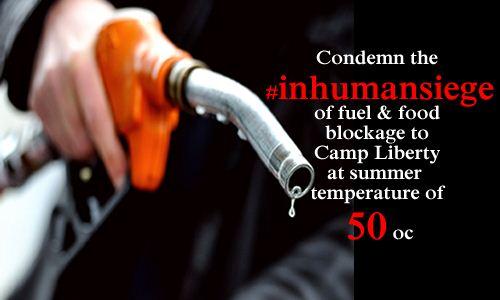The FBI Director announced that Hillary would not be charged.
She lied, as he made clear, and he ripped apart her lies.
But he claimed he could not prove intent.
That's not his job.
That's the attorneys job in court.
A former US Attorney, Matthew Whitaker, has a column at USA TODAY which notes:
Of the emails either turned over or recovered by the FBI, 110 contained information that was classified at the time it was sent or received, of which eight email chains contained information that was top secret at the time it was sent.
The facts also show it was gross negligence when she removed the information from State Department security. Secretary Clinton made the decision to use a personal email system, one that had inferior security to the State Department’s or even another commercial vendor’s email service.
A reasonable prosecutor may ask, if on numerous occasions, an unknown State Department employee had taken top secret information from a secured system, emailed that information on a Gmail account, and stored the information on a personal server for years, would that individual be prosecuted? I believe they would.
Hillary's a liar and she's a crook.
And she demanded that Chelsea Manning be charged when Chelsea was just a whistle-blower.
Hillary can't be trusted with classified information -- how does that qualify her for the presidency?
She needs to drop out of the race and let Bernie Sanders or Joe Biden be the Democratic Party nominee.
New content at Third:
- Truest statement of the week
- Truest statement of the week II
- A note to our readers
- Editorial: Independence for whom?
- TV: Summer flush
- Film Classics of the 20th Century
- Hillary Bros, the most sexist of all
- Who killed the romantic comedy?
- This edition's playlist
- Anti-war newspaper is blocked from reporting as Ch...
- Gary Johnson Tweets
- Thousands rally for Jeremy Corbyn as Labour MPs tr...
- Jill Stein Tweets
And it was written by Dallas and the following:
The Third Estate Sunday Review's Jim, Dona, Ty, Jess and Ava,
Rebecca of Sex and Politics and Screeds and Attitude,
Betty of Thomas Friedman Is a Great Man,
C.I. of The Common Ills and The Third Estate Sunday Review,
Kat of Kat's Korner (of The Common Ills),
Mike of Mikey Likes It!,
Elaine of Like Maria Said Paz),
Cedric of Cedric's Big Mix,
Ruth of Ruth's Report,
Wally of The Daily Jot,
Trina of Trina's Kitchen,
Marcia of SICKOFITRDLZ,
Stan of Oh Boy It Never Ends,
Isaiah of The World Today Just Nuts,
and Ann of Ann's Mega Dub.
Here's C.I.'s "Iraq snapshot:"
Tuesday, July 5, 2016. Chaos and violence continue, Iraq's Interior
Minister 'resigns,' the UN calls out the targeting of Sunni civilians in
Iraq, the death toll from Baghdad's suicide bombing over the weekend
has risen to 250, and much more.
Saturday's snapshot noted a Baghdad suicide bombing that had just taken place (it was Saturday night here in the US, already Sunday in Iraq). The death toll from that bombing has continued to rise. BBC News notes, "The death toll from Sunday's suicide bombing in the Iraqi capital, Baghdad, has risen to 250, the Iraqi government says, making it the deadliest such attack since the 2003 US-led invasion."
Saturday's snapshot noted a Baghdad suicide bombing that had just taken place (it was Saturday night here in the US, already Sunday in Iraq). The death toll from that bombing has continued to rise. BBC News notes, "The death toll from Sunday's suicide bombing in the Iraqi capital, Baghdad, has risen to 250, the Iraqi government says, making it the deadliest such attack since the 2003 US-led invasion."
250 lives lost.
250 dreams shattered.
250 empty spaces in bed.
250 martyrs.
Thousands of broken hearts mourning,
awaiting justice.
#Iraq
"They were looking for human remains. But all they found were some shoes and a pile of black ash." #Iraq
Mother of the groom-to-be Akram al-Karradi who was martyred in Karrada, she is holding his wedding suit. #Baghdad
Funeral procession of the brothers Ali and Adnan - College students who were martyred in Karrada. #BaghdadAttack
Even with the death toll now rising to 250, the attack does not appear to register across the globe the way other attacks in other countries have -- a point made on Twitter:
Over 200 people just died in Iraq and NOONE seems to care&change their damn profile pics to the iraqi flag or atleast hashtag pray for Iraq
Where are the #PrayForIraq hashtags? Where are the Iraqi flag avis? Where is the global concern? Nowhere.
Will Facebook respect by giving the users an Iraqi flag to put over their profile pictures like they did for Orlando & Paris? #PrayforIraq
So will monuments around the world light up with the colors of the Iraqi flag after Baghdad bombings that left hundreds killed, injured?
Where are the #PrayForIraq hashtags? Where are the Iraqi flag avis? Where is the global concern? Nowhere.
The tragedies in Paris and in Orlando, Florida are real and painful. So is the tragedy of the suicide bombing in Baghdad.
Maybe in the west, we've grown immune to caring about violence in Iraq or the victims of it? Maybe we choose to ignore it because there's culpability on our hands? Whatever the reason, there's no denying that 250 people -- at least -- lost their lives and this is a tragedy and it is an outrage.
On the culpability we in the west share, BBC NEWS interviews Kadhim Sharif Hassan al-Jabbouri who took part in the 20003 "toppling of the famous statue of Saddam Hussein in central Baghdad"
Kadhim Sharif Hassan al-Jabbouri: Now, when I go past that statue, I feel pain and shame. I ask myself - why did I topple this statue? I'd like to put it back up, to rebuild it. I'd put it back up but I'm afraid that I'd be killed.
BBC NEWS: Kadhim Sharif Hassan al-Jabbouri used to repair Saddam Hussein's motorcycles. But then he fell out of favour and was jailed for a year and a half.
Kadhim Sharif Hassan al-Jabbouri: More than 14 or 15 people in my own family were executed by Saddam. So I was so happy the day that the Americans came and got rid of Saddam's oppressive regime.
And we'll stop him there because that's where the distortions and lies start.
Since around 2009, he's been making these statements about wanting Saddam back. We'll assume that they are true statements since they are consistent.
But he's not accurate after that point.
July 3, 2004, David Zucchino's "Army Stage-Managed Fall of Hussein Statue" was published by THE LOS ANGELES TIMES. In April of 2008, he discussed the report with Rachel Martin on NPR (link is audio and transcript):
Mr. ZUCCHINO: My impression was that there was a spontaneous rally by Iraqis and they jumped on the statue and basically pulled it down. I knew there was some U.S. soldiers or Marines in the area, but I was not clear on exactly what their role was, whether they were just providing security or were taking part. It was fairly nebulous.
MARTIN: So you dug up more specifics that cast light on those circumstances surrounding the toppling of the statue. Explain what you found out.
Mr. ZUCCHINO: This was part of a five-hundred-and-some page review, or report, by the Army on the entire invasion, what went wrong and what went right. It was sort of an After Action Report, and this was just sort of a one or two page sideline, almost a footnote.
They had interviewed an Army psychological operations' team leader and he described how a Marine colonel - the Marines were in charge of that area and had just come in, and this Marine colonel had been looking for a target of opportunity, and seized on that statue.
And according to this interview with the psy-ops commander, there were Iraqis milling around the statue, and in fact, had been beating it with sledgehammers and apparently thinking about trying to bring it down, but it was a huge statue and they had no way to do that. So the Marines came up with the idea of bringing in a big recovery vehicle, like a wrecker, and trying to bring it down that way.
But the psychological operations commander noticed that the Marines had put an American flag on the statue and he thought that was a terrible idea, because it looked like an occupation and he didn't want - the psychological ops didn't want that, so they replaced it with an Iraqi flag, hooked a cable up to it and started pulling it down.
But somebody had the bright idea of getting a bunch of Iraqis and a lot of kids and pile them on the wrecker to make it look like a spontaneous Iraqi event, rather than, you know, the Marines sort of stage-managing this entire dramatic fall of the statue.
MARTIN: So we can't say that it was the idea of this Marine colonel. He basically was surveying the circumstances, saw that there were Iraqis who were already kind of attacking the statue, and so the U.S. military, according to this report, just facilitated something.
Mr. ZUCCHINO: Correct. They took advantage of an opportunity. As he said, it was a target of opportunity, and they just sort of stage-managed it and made it happen in a way that it would not have happened if the Marines had not intervened.
Again, we'll grant that Kadhim Sharif Hassan al-Jabbouri's sentiments regarding Saddam Hussein are true since he's repeatedly made them to the press beginning in 2009. But we're not going to include his fantasy of how the statue came down when that myth was long ago disproven.
Another thing that is true -- though probably just a stunt -- is a resignation. Saif Hameed and Ahmed Rasheed (REUTERS) report, "Iraq's interior minister resigned on Tuesday and said a deputy would take over his responsibilities, a few days after the deadliest of many car bombings in Baghdad since the 2003 U.S.-led invasion." Probably just a stunt? US-installed prime minister of Iraq Haider al-Abadi has yet to accept the resignation.
Mohammed al-Ghabban has long been a source of controversy. The Shi'ite politician has been accused of misusing the Ministry of the Interior to target Sunni civilians. He's a member of State of Law, the political slate former prime minister and forever thug Nouri al-Maliki started in 2009.
Haydar Hadi and Sibel Ugurlu (Anadolu Agency) quotes al-Ghabban stating:
"I have tendered my resignation to Prime Minister [Haidar] al-Abadi," he said.
"I can withdraw it again in the event that the security apparatus is adequately reformed," he added.
That's why we're calling it a stunt.
You don't announce you're resigning and then, in the next sentence, that you might withdraw your resignation. This is a stunt.
Tim Hume, Ben Wedeman and Mohammed Tawfeeq (CNN) observe:
The government has assured people that
ridding Falluja -- about 65 kilometers (40 miles) west of Baghdad -- and
the rest of Anbar province of the terror group would deliver improved
security to the capital, but it hasn't been the case.
Instead,
Baghdad has suffered the deadliest of a string of terror attacks across
the world executed or inspired by ISIS during the Muslim holy month of
Ramadan.
Meanwhile the office of the United Nations High Commissioner for Human Rights, Zeid Ra'ad Al Hussein, issued the following statement today:
GENEVA (5 July 2016) – As the death toll after Sunday’s suicide bomb in Baghdad continued to climb to well above 150, UN High Commissioner for Human Rights Zeid Ra’ad Al Hussein on Tuesday deplored the terrible loss of innocent lives. The High Commissioner warned that in addition to doing more to protect civilians from ISIL attacks, it is essential the Iraqi authorities step in to halt uncontrolled militias from continuing to take revenge on civilians fleeing towns recaptured from ISIL.
“I utterly condemn this latest horrendous ISIL atrocity, targeting innocent civilians who were celebrating Ramadan in the heart of Baghdad,” Zeid said. “Along with other recent abominations associated with ISIL in Dhaka, Istanbul and Orlando, the sheer unrestrained viciousness of these people defies belief.”
The High Commissioner warned, however, that “acts of revenge and hasty, injudicious policy decisions in reaction to such attacks are simply helping ISIL carry out its strategy to divide societies and promote hatred.”
“ISIL needs to be defeated, and defeated soon,” he said. “But in trying to defeat them, we must be extra careful not to react to their provocations in the way they predict we will react and want us to react. We need not just to be stronger than they are, but cleverer than they are. And in this we are failing badly, not just in Iraq but in a variety of responses all over the world, enabling them to tap into resentments about heavy-handed or unlawful responses to recruit more followers, create more fanatics and suicide bombers.”
“After the loss of Ramadi and Fallujah, with Mosul likely to be the next big battleground, I fear we will see more of these atrocities by ISIL, as they seek to make Iraq implode once more. The way we react, in Iraq and elsewhere, will in many ways decide whether ISIL benefits from its indiscriminate acts of mass murder, or is ultimately destroyed by them,” the UN Human rights Chief said.
Zeid urged the Iraqi authorities to take immediate action to locate and free more than 600 men and boys reportedly abducted by a militia group involved in the recapture of Fallujah from ISIL in June.
On 1 June, according to various witnesses interviewed in Iraq, approximately 8,000 civilians, including some 1,500 men and boys over the age of 14, left their village in Saqlawiyah, near Fallujah. Nearly all belonged to the Albo Akash clan of the al Mahamda Tribe. In the distance they saw what appeared to be a line of Government forces, who hailed them with loudspeakers, saying the villagers had nothing to fear from them. However, once they reached the line, witnesses said that hidden behind the Iraqi flags they saw the flags of a militia called Kataaib Hezbollah.
The militia fighters immediately separated the men and teenage boys from the women and children, who were transferred to Government-run camps for displaced people near Amiryat al Fallujah. The males were initially taken to warehouses and then moved on successive occasions over the next four days to a number of other sites between Saqaliwah and Fallujah.
Mistreatment began almost immediately. Men were crammed into small rooms or halls, sometimes more than 60 to a room. They were denied water and food, and there was little or no ventilation. When they asked for water or food or air, they were abused by militia members, told that their treatment was ‘revenge for Camp Speicher,’* and beaten with shovels, sticks, and pipes.
A number of witnesses attested that some who asked for water or complained about the air were dragged outside and shot, strangled, or severely beaten. In addition, witnesses stated that at least four men were beheaded. Others were handcuffed and beaten to death, and the bodies of at least two men were set on fire.
On 5 June, they were separated into two groups – one consisting of 605 men and boys, and the other of around 900. The smaller group was taken to join the women and children in the Government clearance centre in Ameriyat al Fallujah.
“The fate of the larger group is unknown, which is intensely worrying, particularly given the references made to revenge for the Camp Speicher massacre,” Zeid said. “There is a list of the names of 643 missing men and boys, as well as of 49 others believed to have been summarily executed or tortured to death while in the initial custody of Kataaib Hezbollah. Tribal leaders believe there are around 200 more unaccounted for, whose names have not yet been collected.
The High Commissioner noted that “this appears to be the worst – but far from the first – such incident involving unofficial militias fighting alongside Government forces against ISIL”, and urged the Government to take serious action to prevent further occurrences, including bringing those responsible to account.
“These crimes are not only abhorrent,” Zeid said. “They are also wholly counterproductive. They give ISIL a propaganda victory, and push people into their arms. They increase the likelihood of a renewed cycle of full-throttle sectarian violence. The Prime Minister of Iraq has set up an investigation committee into the disappearances, which I obviously support. But I believe the authorities have to take strong and immediate action to locate the missing men or ascertain precisely what happened to them.
“With a massive and prolonged battle for Mosul just around the corner, the potential for episodes like this to stiffen ISIL’s resistance should not be underestimated,” the High Commissioner said. “There must be an understanding that most of the male inhabitants of these cities are not willing members of ISIL, nor do they necessarily have anything to do with them at all beyond doing what is necessary to stay alive. People who escape from ISIL should be treated with sympathy and respect, not tortured and killed simply on the basis of their gender and where they had the misfortune to be living when ISIL arrived.”
ENDS
*A UN report published in July 2015 concluded that as many as 1,700 cadets were brutally slaughtered by ISIL after Camp Speicher was overrun in June 2014. See: http://www.ohchr.org/EN/NewsEvents/Pages/DisplayNews.aspx?NewsID=16229&LangID=E
For more information and media requests, please contact please contact Rupert Colville (+41 22 917 9767 / rcolville@ohchr.org) or Cécile Pouilly (+41 22 917 9310 / cpouilly@ohchr.org)
There are a hundred other topics I'd love to cover but this snapshot is already too long. We have to cover the big news of the day regarding War Hawk Hillary Clinton: the FBI's announcement regarding her e-mails. Activist and Academy Award winning actress Susan Sarandon's done a great job on Twitter so we'll grab from her:
- If you believe Comey's findings, it means Clinton publicly lied on key points on multiple occasions. But whatever.
Lots of people don't have explicit "criminal intent" when they commit crimes, but are prosecuted anyway, for far less severe wrongdoing.
Exactly: if this had been anyone unimportant, they'd have been (unjustly) charged by now, & Clinton would support it
Comey says the FBI found "extremely careless" handling of highly sensitive information by Hillary and her subordinates. Gross negligence.
Comey: people who did what Clinton has done are "often subjected to security or administrative sanctions" - but not prosecuted.
Comey explicitly debunked a talking point Hillary has repeated ad nauseam -- "marked classified at the time..." -- using HRC's own wording
110 Hillary Clinton emails contained classified information at the time they were sent.
8 were TOP SECRET.
Laws were violated.
A mess.
Larry Johnson's a political independent and a national security analyst who is also former CIA. At his blog NO QUARTER, he shares his thoughts which include:
The facts are compelling and the lies of Hillary totally exposed:
- She did mail classified information, including Top Secret information that was part of a Special Access Program, multiple times.
- The information was classified when she sent and received the messages–it was not subsequently “up” classified.
- Some of the information was marked classified (e.g., SECRET, CONFIDENTIAL).
- Clinton and her team failed to turn over email messages completely and in a timely manner.
- Hillary’s email servers likely were breached by Foreign Intelligence services.
He offers his take on the FBI announcement today and he also links to an important fact check by the AP.
iraq
the los angeles times
david zucchino
npr
rachel martin
 Siddika
Siddika  aaliyah
aaliyah 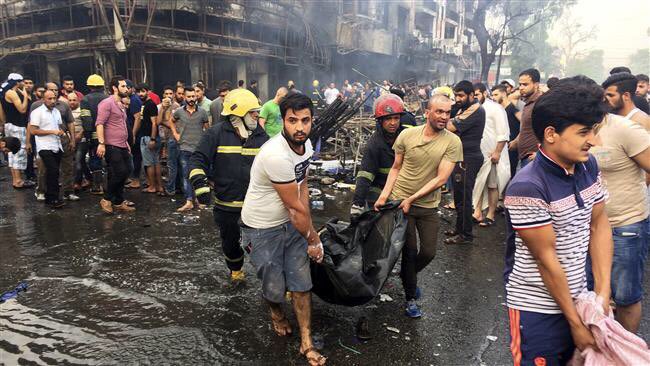
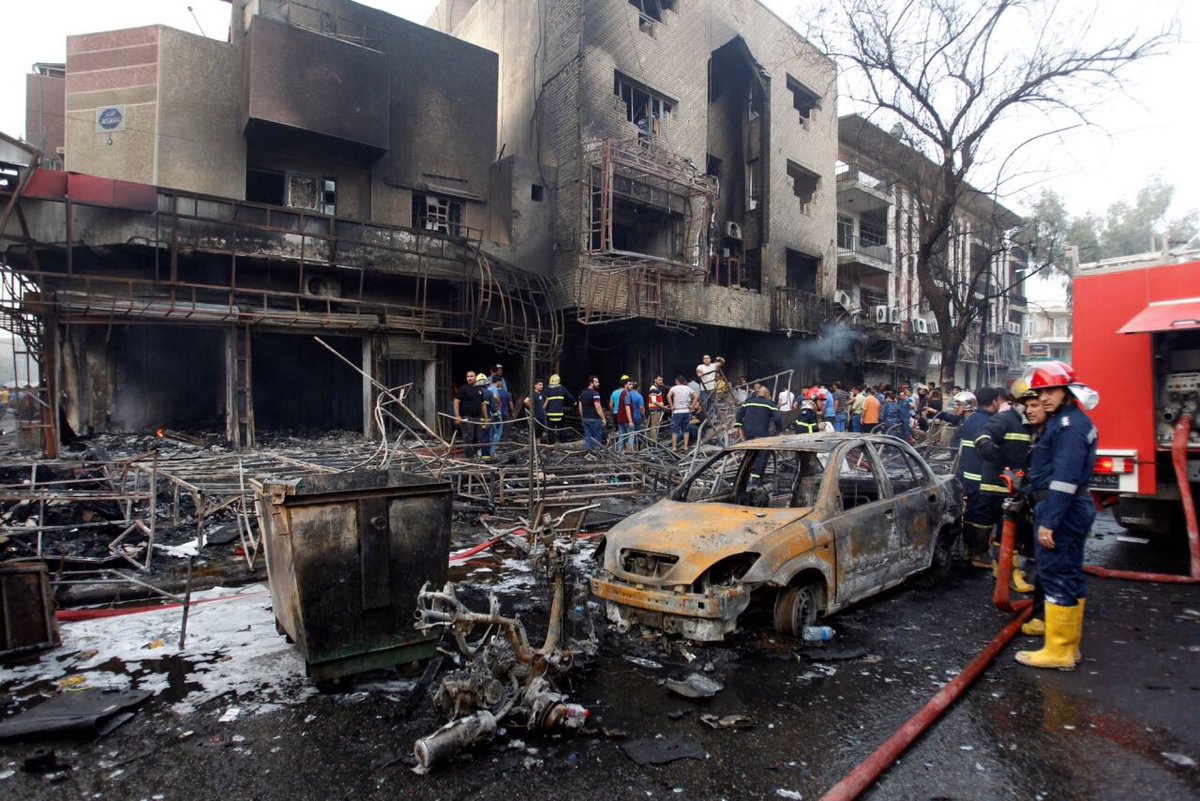
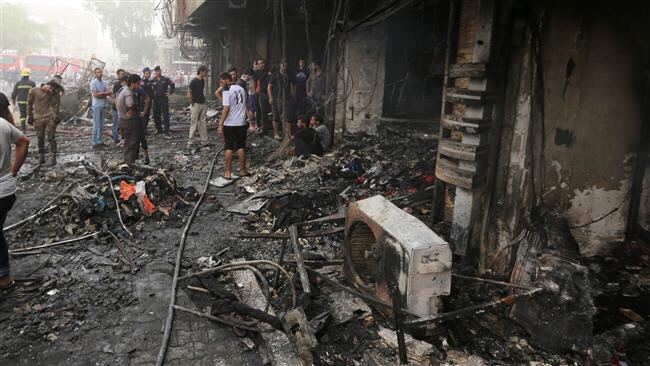
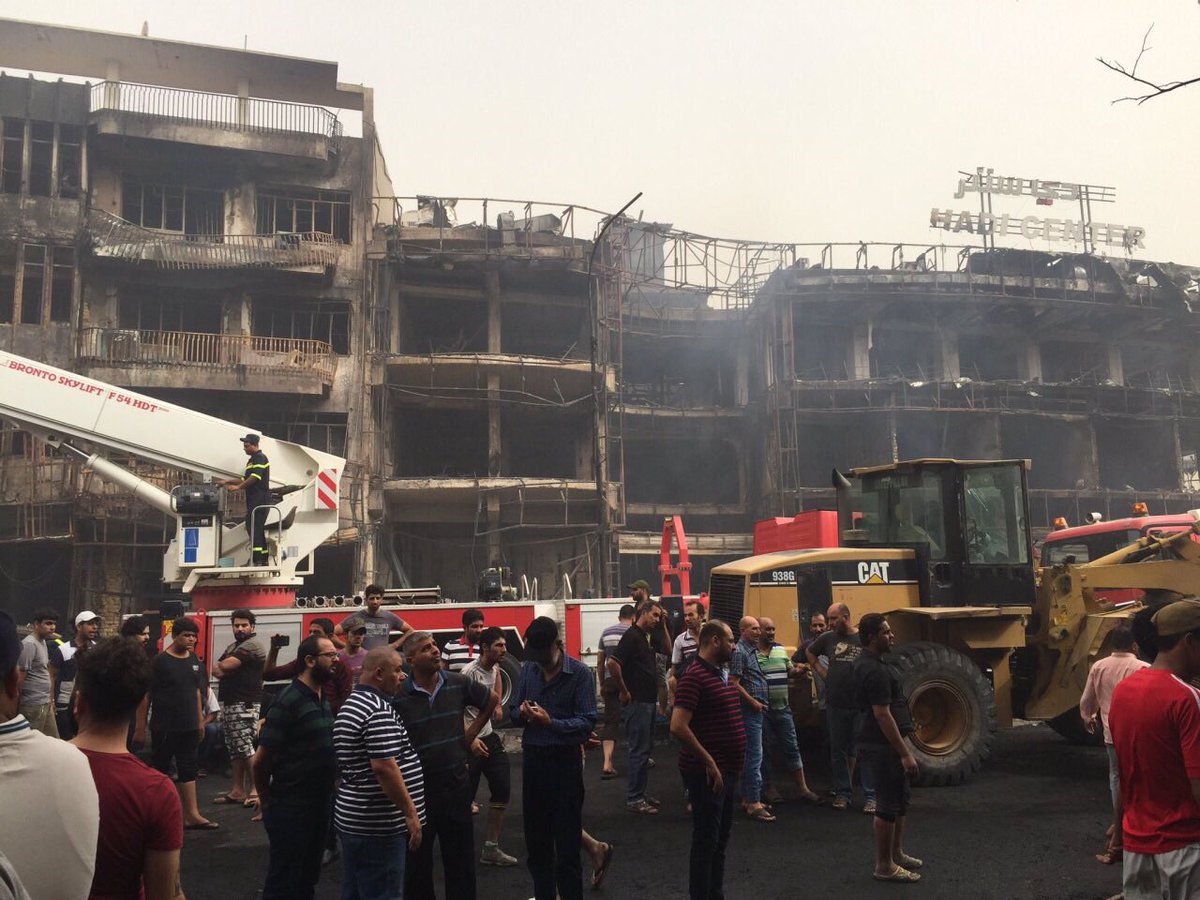
 Danny Postel
Danny Postel  Rana H.
Rana H. 

 Mustafa Al-Khaqani
Mustafa Al-Khaqani 


 ㅤ
ㅤ 


 Afnan
Afnan  T
T  Noor
Noor  Glenn Greenwald
Glenn Greenwald  Michael Tracey
Michael Tracey  Shaun King
Shaun King 
 Hayder Al-Shakeri
Hayder Al-Shakeri 



 shahriar kia
shahriar kia 
